관능 소설
관능 소설은 성적인 내용을 다루는 소설장르로, 일반적으로 세밀하게 기술된 성적인 상황과 풍부하고 직결된 언어로 설명된 감성을 포함합니다. 관능 소설은 대개 성적 불만족, 성욕, 로맨스, 연애, 이별, 출사표 등의 주제를 다루며, 상대적으로 덜 엄격한 접근 방식으로 이야기를 전개합니다.
관능 소설의 유래와 역사
관능 소설의 유래는 중세 유럽의 성선문학에서 나온 것으로, 성생활을 자세히 묘사하는 것이 관습이었습니다. 그러나 이러한 접근 방식은 현대로 오면서 장르가 점점 성스러워졌습니다. 19세기 초에는 이러한 작품들이 “아멜리아데” 라는 용어로 묘사되었습니다. 이후 18세기 후반, 섹스에 대한 자유로운 태도를 반영하던 작품들이 “크로메웰 파티”로 알려져, 관능 소설의 역사가 시작되었습니다.
관능 소설의 특징
관능 소설은 대체로 성적 효과를 최대한 조성하기 위해 생생하게 묘사와 포착한 것으로, 설명이 상세하며, 읽는 사람들의 상상력을 자극합니다. 이러한 특징은 보통 성적인 요소가 과하거나 강제적인 경우가 많이 있어 논란이 될 수 있습니다. 그러나 관능 소설은 일반적으로 예술적 측면에서 보면 경이롭기 때문에, 미적 가치를 갖추고 있는 것입니다.
관능 소설의 장르와 구분
관능 소설은 다양한 형태와 분류체계가 있는데, 로맨스, 에로티카, 학원물, 스포츠물, 판타지 등의 장르로 나뉩니다. 로맨스 부류의 관능 소설에서는 대개 두 인물 간의 애정 스토리를 중심으로 이야기가 전개되지만, 에로티카 부류에서는 대개 인물 간의 관계를 자세히 다룹니다. 학원물, 스포츠물은 그것들의 특별한 세계에서 전개되며, 판타지 소설은 이상적이며, 가상적인 세계에서 관능적 상황이 묘사됩니다.
관능 소설과 다른 문학 장르와의 연관성
관능 소설은 일반적으로 로맨스, 판타지 등의 문학 장르를 포함해 덜 상세한 것으로 생각될 수 있는 값하지만, 사실 관능적인 성향을 지니는 작품들은 다양한 장르와 관계가 있습니다. 예를 들어, 일반적으로 삶의 수렴과 같은 인생 이치를 다루는 “성장 소설”에서도 대체로 성적 효과를 전달하는 적극적인 요소를 포함할 수 있습니다. 이와 같이 소설의 분류 체계에서 관능 소설은 독특한 형태를 가지며, 다른 장르들과 연계되어 있습니다.
관능 소설의 성적 표현과 윤리적 문제
관능 소설은 대체로 성적인 내용을 다룬다는 점에서 업계에서 상반되는 반응을 불러일으킬 수 있습니다. 일부 사람들은 이러한 소재들이 모욕적이고 폭력적으로 느껴지고, 소설이라는 틀 안에서 여성적인 담론이 재생산된 현상을 비판합니다. 그러나 관능 소설은 단순한 성적 효과를 더 잘 전달하기 위해 생생한 언어와 섬세한 표현 기술이 사용됩니다.
관능 소설이 현대 문학에 미치는 영향
관능 소설은 현대 문학에서 유일무이한 고유한 장르로 규정될 수 있습니다. 이른바 “소수의문학”이란 개념과 직접적인 연결이 있이때문입니다. 이러한 작품들은 대개 대중적인 성향을 띄기 때문에 관음가들을 많이 보존하는데 일조합니다. 이 밖에도, 다양한 장르와 철학적인 측면에서 가치가 인정되고 있으며, 비디오게임, 에로티카 등의 다양한 분야에서 영감을 얻고 있습니다.
관능 소설을 읽는 방법과 평가의 다양성
관능 소설을 작성하는 것은 소설 재능, 소설 구상, 소설책, 소설 글, 웹소설 연습, 소설 소재, 판타지 소설 쓰는 법, 소설 쓰는 법 등 이있습니다. 즉, 관능 소설을 이해하고 읽는 방법은 매우 다양합니다. 관능 소설의 평가는 일반적으로 다른 문학 장르에서의 평가와는 다르게, 작품에서 살아 남는 객관적인 추구목표와 임시적 요소를 구별하여 신중하게 이루어져야합니다.
FAQs
Q1: 관능 소설은 성적 내용에 초점을 맞춘 소설 또는 에로티카 장르라고 이해하면 될까요?
A1: 맞습니다. 관능 소설은 널리 인정받는 에로티카 소설장르이며, 주로 성적 효과와 감성을 다룹니다.
Q2: 관능 소설이 비관능적인 소설보다 인기가 많은 이유는 무엇인가요?
A2: 관능 소설은 대체로 예술적이며, 경이를 유발할 수 있는 미적 가치를 갖고 있습니다. 또한, 풀림과 감성적 준비 등의 측면에서 짧은 발간 주기로 대응할 수 있습니다.
Q3: 관능 소설은 음란물이나 성매매 적극적으로 반대하는 곳에서 출판되는 경우가 잦은가요?
A3: 맞습니다. 대체로 관능 소설은 규제가 비교적 적은 동카타르, 대한민국, 이란, 중국, 타이완 등의 지역에서 경우 비교적 전문적이며, 일반적인 출판 산업에서 어려움을 격기 하기도 합니다.
Q4: 관능 소설은 다른 문학 장르에서도 사용할 수 있는 요소인가요?
A4: 맞습니다. 일부 로맨스, 성장 소설, 판타지 장르에서도 관능적인 요소가 사용될 수 있으며, 다른 문학 장르에서 발생할 수 있는 충돌이 어느 시점에서든 되지 않도록 지혜롭게 취급되어야합니다.
Q5: 관능 소설은 일반적으로 비추천인지요?
A5: 이는 매우 개인적인 사항입니다. 그러나 대체로 성적인 설명이 들어간 소설을 읽을 때 자신이 편안하다고 느낀다면 적극적으로 추천합니다.
사용자가 검색한 키워드: 관능 소설 소설 재능, 소설 구상, 소설책, 소설 글, 웹소설 연습, 소설 소재, 판타지 소설 쓰는 법, 소설 쓰는 법
Categories: Top 91 관능 소설
#장준호관능소설[관계]#1편삼마치터널1#오디오북#책읽어주는가수
여기에서 자세히 보기: c3.castu.org
소설 재능
The talent for writing, as with any other skill or aptitude, can be either inborn or developed through diligent effort. Some writers may have a natural affinity for storytelling and written composition, while others may have to hone their skills through extensive practice and study. Regardless of how it is acquired, however, 수설 재능 is a valuable asset that can bring prestige, recognition, and even financial success to those who possess it.
To better understand the concept of 수설 재능 in Korean society, it is essential to delve into its historical and cultural roots. Korea has a long tradition of storytelling, dating back to ancient times when legends and folklore were passed down orally from generation to generation. As a result, storytelling became a core aspect of Korean culture, with oral traditions evolving over time into written literature.
Over the centuries, Korean literature has undergone various influences and transformations due to historical, social, and political changes. However, the central themes of love, loyalty, betrayal, honor, and sacrifice have remained constant, providing a powerful emotional resonance that transcends time and culture. 소설 재능 is thus seen as a way to honor and preserve this tradition, to give voice to these age-old themes in a modern, engaging way.
The significance of 소설 재능 can be further illustrated by the prominence of literature in Korean society. Korean novels are widely read, discussed, and analyzed, with a strong emphasis on literary quality and artistic merit. As a result, many Korean writers are celebrated as cultural icons, with their works inspiring and shaping popular imagination and discourse.
At the same time, writing novels in Korea is also a highly competitive field, with numerous aspiring authors vying for recognition and appreciation. Many writers attend workshops and participate in literary competitions in the hopes of being discovered by publishers or readers. This intense competition further underscores the significance of 소설 재능, as it establishes a high standard for literary excellence.
But what exactly constitutes 소설 재능? What are the qualities that distinguish a gifted storyteller from an average one? While there are no set criteria or prerequisites for writing novels, a number of factors can contribute to the development and refinement of one’s talent. These include:
Imagination: A rich and vivid imagination is a hallmark of any successful novelist. A talented writer is able to conjure up entire worlds, complex characters, and intricate plots out of thin air, weaving them together into a compelling narrative that captivates readers.
Observation: A keen eye for detail, coupled with perceptive insights into human behavior and psychology, enables a writer to create believable and relatable characters. The ability to observe and capture subtle nuances, gestures, and emotions can imbue a story with depth and authenticity.
Craftsmanship: Like any form of art, writing requires skill and technique. A good writer understands the fundamentals of grammar, syntax, and style, but also possesses the ability to experiment and push the boundaries of conventional writing norms.
Passion: Above all, writing novels requires a deep-seated love and commitment to the craft. A talented writer is driven by a sense of purpose, a desire to communicate their ideas and perspectives to a wider audience, to inspire, educate, or entertain.
While these factors may contribute to a writer’s success, they are by no means exhaustive or definitive. Each writer has their own unique strengths and weaknesses, and their own approach to the art of storytelling. Furthermore, talent alone does not guarantee success – perseverance, determination, and hard work are also critical factors in achieving one’s goals.
In conclusion, 소설 재능 is a valuable asset that reflects the rich literary tradition and cultural heritage of Korea. A talent for writing novels can bring recognition, success, and fulfillment to those who possess it, but it requires a combination of imagination, observation, craftsmanship, and passion. Aspiring writers must be prepared to put in the effort and dedication required to develop and refine their skills, and to persevere in the face of competition, rejection, or criticism.
FAQs
What is the most important quality for a writer to have?
There is no one “most important” quality for a writer to have, as writing novels requires a combination of different skills and aptitudes. However, a deep-seated passion and love for the craft is often cited as a key driver for success, as it can sustain a writer through the highs and lows of the creative process.
Can anyone be a writer, or is it a talent that some are born with?
While some individuals may have a natural inclination or aptitude for writing, anyone can learn to become a writer through practice, study, and learning from others. Writing novels requires discipline, hard work, and perseverance, and it is often said that the most successful writers are those who are committed to continuous improvement and growth.
What distinguishes Korean literature from other literary traditions?
Korean literature has been shaped by a unique historical and cultural context, which has produced narratives and themes that are distinct from other literary traditions. Key elements of Korean literature include an emphasis on emotional resonance and human relationships, a respect for tradition and historical legacy, and a focus on everyday life and domestic settings. Additionally, Korean literature has been deeply influenced by Confucian ideology, which emphasizes filial piety, loyalty, and social order.
What are some famous Korean novelists?
There are many esteemed Korean novelists, both past and present, who have made significant contributions to Korean literature. Some of the most notable writers include Yi Mun-yol, Park Wan-suh, Lee Seung-u, Kim Young-ha, and Han Kang, who won the prestigious Man Booker International Prize for her novel The Vegetarian. Each of these writers has their own unique style and perspectives, but all are celebrated for their literary excellence and artistic merit.
소설 구상
Why is novel planning important?
Novel planning is essential because it allows you to organize your thoughts and ideas before starting to write. By creating an outline or roadmap, you can ensure that your novel has a well-structured plot, engaging characters, and a clear message. Not only does novel planning make the writing process easier, but it also helps you avoid getting stuck in the middle of your novel, as well as prevents plot holes and inconsistencies.
What are the essential components of novel planning?
1. The Premise: Your novel’s premise should capture the reader’s attention and provide a clear idea of what the story is about. It is the foundation of your story, providing a clear purpose for writing.
2. Character Development: Your characters should be well-developed, with individual traits, goals, and motivations. Without strong and realistic characters, your novel may fall flat, and readers may have trouble connecting with your story.
3. Plot Structure: The plot structure is the backbone of your novel. It should be well-structured and cohesive, with a clear beginning, middle, and end. The structure should also include key plot points, character arcs, and a resolution that satisfies the reader.
4. Setting: The setting is the backdrop of your novel, providing a sense of place and time. The setting should be well-defined, providing readers with enough detail to imagine the world of your story.
5. Themes: Themes are the underlying messages and ideas that you explore throughout your novel. They provide depth and complexity to your story, making it more interesting and thought-provoking.
What should you consider when planning your novel?
1. The Genre: Before you start planning your novel, consider the genre you want to write. Different genres have specific expectations and conventions, which can help guide your novel planning.
2. Your Audience: Who is your target audience? What do they want to read? Considering your audience’s preferences and interests can help you create a story that resonates with them.
3. Your Writing Style: Your writing style can also impact your novel planning. Some writers prefer to plan their novels meticulously, while others prefer a more organic approach. Choose a planning style that works best for you.
4. Research: Depending on the topic and setting of your novel, you may need to conduct extensive research. Take the time to research key details, such as historical events, cultural customs, and geographical locations, to ensure accuracy and authenticity.
Tips for Successful Novel Planning
1. Brainstorm Ideas: Start by brainstorming ideas for your novel. Write down anything that comes to mind, even if it is not fully developed. This can help you generate new ideas and connections between concepts.
2. Develop Your Premise: Once you have a list of ideas, choose one to develop into your novel’s premise. Your premise should provide a clear idea of what your novel is about in just a few sentences.
3. Create Your Characters: Develop your characters by giving them unique traits, motivations, and goals. Consider their backstory, relationships, and conflicts to make them well-rounded and believable.
4. Outline Your Plot: Create an outline of your plot, breaking it down into key events and plot points. This can help you make sure that your story flows smoothly and has a clear structure.
5. Plan Your Setting: Develop your setting by considering key locations and details that will create a believable backdrop for your story.
6. Consider Themes: Think about the underlying themes you want to explore in your novel. These themes can help guide your storytelling and add depth to your characters and plot.
7. Revise Your Plan: After you have developed your novel plan, take the time to revise and refine it. Consider feedback from beta readers or writing groups to help improve the plan.
FAQs
1. Should I plan my novel before writing?
Yes, novel planning is an essential step before writing. It helps ensure a cohesive plot, engaging characters, and a clear message.
2. How do I create a plot outline?
When creating a plot outline, think about the key events that happen in your story. These events should build on each other, leading to a clear resolution by the end of your novel.
3. How do I create well-developed characters?
To create well-developed characters, consider their traits, motivations, and goals. Take the time to build their backstory, relationships, and conflicts, which will make them more human and believable.
4. What are some tips for research?
When conducting research, start with reputable sources such as books, academic articles, and interviews with experts. Take notes on key details and make sure to fact-check before incorporating them into your novel.
5. How much planning should I do before writing my novel?
The amount of planning required before writing a novel depends on the individual writer’s preferences and style. Some writers prefer to plan meticulously while others prefer a more organic approach. Find what works best for you, but always do some planning before starting to write.
In conclusion, novel planning is essential for any writer who wants to create a well-structured, engaging, and thought-provoking story. By considering the essential components of novel planning, brainstorming ideas, and taking the time to research and revise, you can create a novel that resonates with readers and satisfies your creative vision.
소설책
Novels (소설책) in Korean literature are known for their in-depth exploration of themes such as love, family, society, and cultural traditions. From historical dramas to romantic comedies, Korean novels offer a diverse range of writing styles and themes, making them popular among readers both in Korea and abroad.
History of Korean Novels
Korean novels have a long and rich history dating back to the Joseon Dynasty (1392-1910), where they were mainly written in classical Chinese. These novels focused on Confucianism, which was the prevailing ideology at the time. Confucianism emphasized the importance of family, relationships, and social order.
In the early 20th century, Korean literature underwent a significant transformation. The introduction of the Hangul writing system in 1443 made it easier for Koreans to read and write in their native language. As a result, Korean novels began to be written in Hangul.
Korean literature also experienced significant changes in the literary form. Novels were no longer written solely in classical Chinese, but in the vernacular. This allowed authors to tell stories about everyday life and culture, bringing a new form of realism to Korean literature.
Types of Korean Novels
Korean novels can be classified into several genres, including historical fiction, romance, mystery, science fiction, and fantasy. Here are some of the most popular genres of Korean novels:
Historical Fiction – Historical fiction novels are set in a specific period of history, often featuring well-known historical figures. These novels offer readers a glimpse into what life was like during that time.
Romance – Romance novels explore the complexities of love, relationships, and the pursuit of happiness. These novels often feature characters who overcome obstacles and trials to find true love.
Mystery – Mystery novels are plot-driven and often involve crime, investigation, and suspense. These novels are a popular choice for those who enjoy a good page-turner.
Science Fiction – Science fiction novels are often set in the future or in an alternate reality. They explore scientific or technological advancements and their impact on society, often questioning what it means to be human.
Fantasy – Fantasy novels create imaginary worlds and often incorporate magical elements. These novels are popular among readers who enjoy endless possibilities and fantastical adventures.
Publishing Industry in Korea
The Korean publishing industry has experienced significant growth over the past few decades. In 1990, the Korean government developed a cultural policy to support the country’s cultural industries, including literature. As a result, the number of books published each year has increased significantly. In 2018, over 80,000 books were published in Korea, with novels being one of the most popular genres.
One of the most well-known publishers in Korea is Munhakdongne. Founded in 2000, the publishing house has published more than 1,000 novels, many of which have become bestsellers in Korea and abroad. Other notable publishers include Sigongsa, Changbi Publishers, and Minumsa.
Frequently Asked Questions
What are some popular Korean novels?
Some popular Korean novels include:
1. The Vegetarian by Han Kang.
2. Please Look After Mom by Kyung-Sook Shin.
3. Pachinko by Min Jin Lee.
4. The Hen Who Dreamed She Could Fly by Hwang Sun-mi.
5. My Brilliant Friend by Elena Ferrante.
Where can I buy Korean novels?
Korean novels can be purchased from major online retailers such as Amazon, Barnes & Noble, or the respective publisher’s website. There are also many independent bookstores and online retailers that specialize in Korean literature, such as Hanbooks and YesAsia.
Can I read Korean novels in English?
Yes, many Korean novels have been translated into English. Some popular translations include, The Vegetarian by Han Kang, Please Look After Mom by Kyung-Sook Shin, and Pachinko by Min Jin Lee.
Are Korean novels only popular in Korea?
No, Korean novels have gained popularity around the world. In recent years, there has been a surge in interest in Korean culture, or hallyu, which includes K-pop, Korean dramas, and Korean literature. Korean novels have been translated into multiple languages and have found a global audience.
What is the future of Korean novels?
The future of Korean novels looks bright, with more and more novels being published each year. In addition, the Korean government continues to support the cultural industries, including literature, with policies that promote the creation and distribution of new works. Korean literature is increasingly being recognized as an essential part of the country’s culture, not just in Korea but around the world.
In conclusion, Korean novels or 소설책 are a vital part of Korean literature, telling stories of love, family, social issues, and culture. These novels come in various styles and genres, and they have a growing popularity in Korea and around the world. As the Korean publishing industry continues to thrive, there is no doubt that Korean literature, including novels, will continue to innovate and inspire readers.
주제와 관련된 이미지 관능 소설
![#장준호관능소설[관계]#1편삼마치터널1#오디오북#책읽어주는가수 #장준호관능소설[관계]#1편삼마치터널1#오디오북#책읽어주는가수](https://c3.castu.org/wp-content/uploads/2023/06/hqdefault-168.jpg)
관능 소설 주제와 관련된 이미지 28개를 찾았습니다.

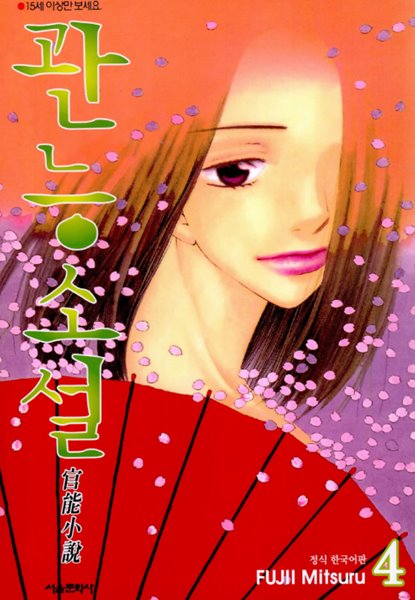
![관능소설 육체보조 [베리즈] - 히지리 유카 - 웹툰 - 레진코믹스 관능소설 육체보조 [베리즈] - 히지리 유카 - 웹툰 - 레진코믹스](https://ccdn.lezhin.com/v2/comics/5443718940327936/episodes/4637930328031232/images/cover.jpg?updated=1553828440250&width=156)
![더블 판타지 Double Fantasy 도서 리뷰 : [더블판타지] 관능소설? | YES24 블로그 - 내 삶의 쉼표 더블 판타지 Double Fantasy 도서 리뷰 : [더블판타지] 관능소설? | Yes24 블로그 - 내 삶의 쉼표](https://image.yes24.com/blogimage/blog/h/o/hogwarts29/2_4.jpg)


![일본 관능소설에의 초대, 단 오니로쿠의 오욕의 꽃] 약혼자 친구의 함정에 빠지는 유리코 - YouTube 일본 관능소설에의 초대, 단 오니로쿠의 오욕의 꽃] 약혼자 친구의 함정에 빠지는 유리코 - Youtube](https://i.ytimg.com/vi/F1D_knR3cMg/mqdefault.jpg)
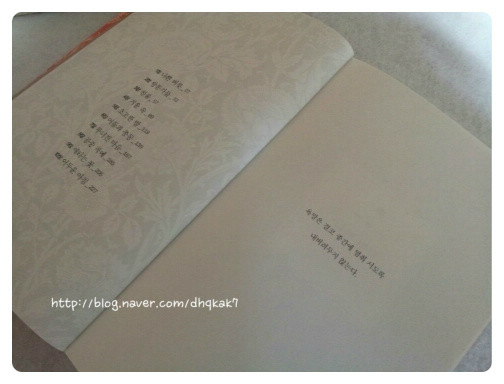

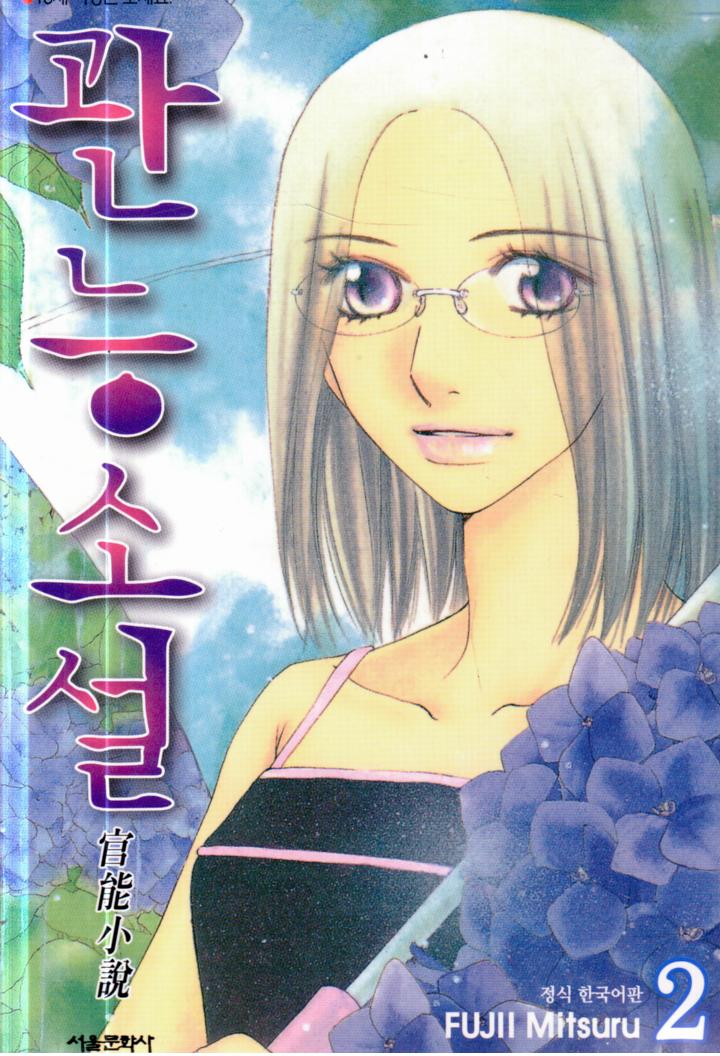
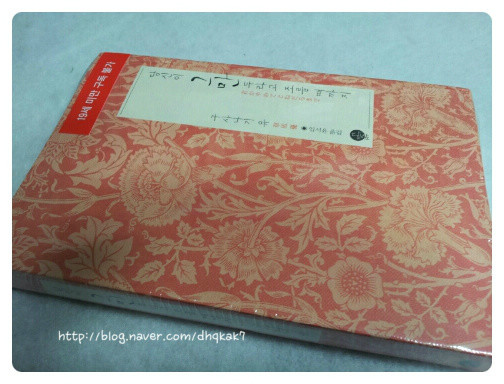

![장준호관능소설 [관계] #1편삼마치터널2부#오디오북#책읽어주는가수 - YouTube 장준호관능소설 [관계] #1편삼마치터널2부#오디오북#책읽어주는가수 - Youtube](https://i.ytimg.com/vi/5YyLvR0K8RA/maxresdefault.jpg)
![저희는 관능소설을 봅니다...[홀로라이브/우사다페코라] - YouTube 저희는 관능소설을 봅니다...[홀로라이브/우사다페코라] - Youtube](https://i.ytimg.com/vi/f5tWw6LbVsc/maxresdefault.jpg)

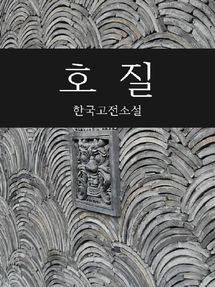
![관능소설 육체보조 [베리즈] - 히지리 유카 - 웹툰 - 레진코믹스 관능소설 육체보조 [베리즈] - 히지리 유카 - 웹툰 - 레진코믹스](https://ccdn.lezhin.com/v2/comics/5443718940327936/episodes/5831815540637696/images/cover.jpg?updated=1553828440250&width=156)
![장준호관능소설 [관계] #1편삼마치터널2부#오디오북#책읽어주는가수 - YouTube 장준호관능소설 [관계] #1편삼마치터널2부#오디오북#책읽어주는가수 - Youtube](https://i.ytimg.com/vi/5YyLvR0K8RA/maxresdefault.jpg)
![후부키X마린 관능 소설을 쓰고 싶은 망상충, 타카네 루이 [호쇼 마린] [시라카미 후부키] [타카네 루이] [홀로라이브] - YouTube 후부키X마린 관능 소설을 쓰고 싶은 망상충, 타카네 루이 [호쇼 마린] [시라카미 후부키] [타카네 루이] [홀로라이브] - Youtube](https://i.ytimg.com/vi/O5ZNbFbCZWs/maxresdefault.jpg)


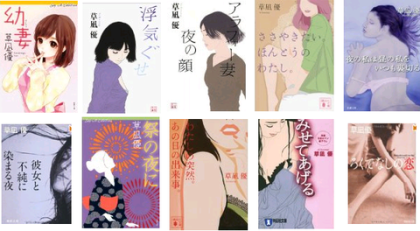
![관능소설 육체보조 [베리즈] - 히지리 유카 - 웹툰 - 레진코믹스 관능소설 육체보조 [베리즈] - 히지리 유카 - 웹툰 - 레진코믹스](https://ccdn.lezhin.com/v2/comics/5443718940327936/episodes/4733894929809408/images/cover.jpg?updated=1553828440250&width=156)
Article link: 관능 소설.
주제에 대해 자세히 알아보기 관능 소설.
- 소설작법/장르별 – 나무위키
- 관능 소설 – 예스24
- 욕망의 도시 (19금 관능소설)
- apbooks – [무료] 베스트 일본 관능소설 選(맛보기 판)
- 관능소설이라고 들어보셨나요?: 구사나기 유의 <당신이 그만두 ...
- 관능소설 1 – 알라딘
- 관능 소설 뜻: 육체적 쾌감, 특히 성적인 쾌감을 자극하는 내용을 …
- 슈퍼마켓에서의 유혹 (19금 관능소설)
더보기: https://c3.castu.org/danh-muc/lam-dep/